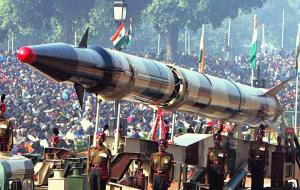
Marsilio Ficino, the great renaissance philosopher-priest, understood how disingenuous it is to speak up and legislate against murder while promoting that ordinary people should have free access to the means to kill easily anyone they desired. “What more, my friends? The magistrates forbid murder, and allow instruments for killing men to be made everywhere.”[1] If we allow people to possess arms whose sole purpose is to maim or kill others, we should not be surprised, given the opportunity, they will be used; it is almost inevitable, which is why it is at best a mixed-message to say people should be free to own them while objecting to their use. Why should anyone own such weapons?
This is why the just regulation of arms, such as various kinds of assault weapons, makes sense, for it means we recognize we cannot support the possession of weapons whose sole purpose is some evil without giving unnecessary support to that evil. Killing, even in self-defense, is an evil; while it might be justified, and the one who defense themselves is not culpable for their action, they will still be affected by the evil they were forced to do. Traditionally it was understood that those who killed anyone for any reason, even if what they did was justified, have been harmed by the evil they committed and were in need of spiritual healing. This is why St. Basil said even soldiers whose actions were purely defensive and justified will need to deal with what they have done after a given war is over:
Our Fathers did not reckon killings in war as murders, but granted pardon, it seems to me, to those fighting in defense of virtue and piety. Perhaps, however, it is well to advise them that, since their hands are not clean, they should abstain from communion alone for a period of three years. [2]
Today, we tend to engage the matter differently than St. Basil. We will agree with him that we must deal with people prudentially, helping them deal with all the consequences of their actions. What we believe is important is to find the proper means by which they are given what they need to deal with the psychological and spiritual harm which arises out of killing someone else; that is, we should give them psychological aid while also giving them spiritual blessings with more, not less, opportunities for grace. We certainly need to understand that what they have done, even if it was not their intention to ever do so, has changed them, and we must find a way to help them deal with such changes so as not to become desensitized to death, nor to have them despair because of what they have done.
What is true on the micro or individual level, that we should not encourage people to possess or use weapons whose only purpose is to kill, is also true on the macro or international scale. No country should eek to possess arms of mass destruction, especially those which when used, lead to indiscriminate mass destruction, because their use will never be good and their possession, despite the claims of some, does not create the conditions necessary for lasting peace. While there might be a stand-off between countries which possess nuclear weapons, all it takes is one of them to become governed by someone who does not care if they should live or die, for the stand-off to be broken and instead lead to the worst case scenario possible, where someone ends up willing to use nuclear weapons if they do not have their every wish fulfilled by the rest of the world.[3] This is one of the reasons why the church denounced the arms race, knowing that it was not so safe as those who promoted it claimed it to be:
Whatever be the facts about this method of deterrence, men should be convinced that the arms race in which an already considerable number of countries are engaged is not a safe way to preserve a steady peace, nor is the so-called balance resulting from this race a sure and authentic peace. Rather than being eliminated thereby, the causes of war are in danger of being gradually aggravated.[4]
While we might think the fact that no country would use nuclear weapons if they are assured of their own destruction, we must remember, some people upon losing a war commit suicide. We saw this at the end of World War II when Hitler killed himself in his underground bunker at his headquarters in Berlin. If such a person was malicious, and they had the means, they could now choose “suicide by nuclear apocalypse” as a way to take revenge on a world which they could not control. This is why the arms race is itself a trap; it gives, for a time, a sense of peace, for we think no rational person would ever use nuclear arms so long as their own destruction is assured, but that time allows someone who has a nihilistic approach to the world to come in power, seek to increase their power and control in the world, and if they do not get it, break the nuclear stand-off and show how much of a farce the claim that the arms race leads to peace actually was:
Therefore, we say it again: the arms race is an utterly treacherous trap for humanity, and one which ensnares the poor to an intolerable degree. It is much to be feared that if this race persists, it will eventually spawn all the lethal ruin whose path it is now making ready. Warned by the calamities which the human race has made possible, let us make use of the interlude granted us from above and for which we are thankful to become more conscious of our own responsibility and to find means for resolving our disputes in a manner more worthy of man. Divine Providence urgently demands of us that we free ourselves from the age-old slavery of war. If we refuse to make this effort, we do not know where we will be led by the evil road we have set upon. [5]
This is why Pope after Pope, since the creation of nuclear arms, have spoken out against the arms race. We need to speak up with Pope St. John XXIII and say: “Nuclear weapons must be banned.”[6] We must work against any and all ideologies which defends the arms race:
International peace and stability cannot be based on a false sense of security, on the threat of mutual destruction or total annihilation, or on simply maintaining a balance of power. Peace must be built on justice, on integral human development, on respect for fundamental human rights, on the protection of creation, on the participation of all in public life, on trust between peoples, on the support of peaceful institutions, on access to education and health, on dialogue and solidarity. From this perspective, we need to go beyond nuclear deterrence: the international community is called upon to adopt forward-looking strategies to promote the goal of peace and stability and to avoid short-sighted approaches to the problems surrounding national and international security. [7]
It is not just nuclear arms which must be reduced; conventional weapons must also be reduced to a minimum; we must show we mean peace:
In fact, nuclear weapons are not the only means of war and destruction. The production and sale of conventional weapons throughout the world is a truly alarming and evidently growing phenomenon. No negotiations about armaments would be complete if they were to ignore the fact that 80 percent of the expenditures for weapons are devoted to conventional arms. Moreover, the traffic in these weapons seems to be developing at an increasing rate and seems to be directed most of all toward developing countries. Every step taken to limit this production and traffic and to bring them under an ever more effective control will be an important contribution to the cause of peace. [8]
This, of course, reflects the problem of accumulating arms in general, whether we are talking about their ownership on an individual or on a national scale. We need to think past the notion that arming ourselves to the extreme is the best way to produce peace. It is clear many people are into weaponry for reasons other than for peace; they want to have the most powerful weapons so that they can use them to force their will upon others. Peace based upon threats does not last. Someone will eventually not give in to those threats. Then the buildup of arms will only create the condition where they will be used. They will have to be used, either by the one who has threatened others with them, only to show that they must be obeyed, or by those who feel threatened, those who are willing to use what little they have to defend themselves from such threats even if it means they risk losing their lives in the process. We must begin promoting on the micro as well as on the macro scale level a new way of being, one which promotes what is good and just instead of might as a way to change the world and make of it as we wish:
Everyone, however, must realize that, unless this process of disarmament be thoroughgoing and complete, and reach men’s very souls, it is impossible to stop the arms race, or to reduce armaments, or—and this is the main thing—ultimately to abolish them entirely. Everyone must sincerely co-operate in the effort to banish fear and the anxious expectation of war from men’s minds. But this requires that the fundamental principles upon which peace is based in today’s world be replaced by an altogether different one, namely, the realization that true and lasting peace among nations cannot consist in the possession of an equal supply of armaments but only in mutual trust. And We are confident that this can be achieved, for it is a thing which not only is dictated by common sense, but is in itself most desirable and most fruitful of good. [9]
We must seek peace, recognizing that “holding the sword” or any other instrument of death over others runs contrary to such peace. This is why Biden’s defense budget, with its increase focus in nuclear arms, should be criticized and reformed; even if the current administration has nothing but good intentions for it, it will only provide the means for something bad to come in the future as it falls into the trap of relying upon instruments of mass destruction as the means of establishing and sustaining peace. “The weapons they prioritize—nuclear and long-range strike—reflect an unsteady year in which China launched a hypersonic missile around the globe and Russia put its own nuclear forces on heightened alert while invading Ukraine.”[10] This is dangerous brinkmanship which Biden, as a Catholic, should know will not work. Biden understands the problem, as he can and does support gun control legislation; he and his administration needs to understand that the principles which lead to support gun control on the individual level are also valid, if not more, on the international level when dealing with nuclear arms. Of course, this is not an issue which is to be had only with Biden, but with many in government, as our government in general has accepted the lie of the arms race. As it is far more likely that someone who understands the problems on a micro or individual level will be able to see the problem on the macro or international scale than someone who does not, we can believe discussions on the issue with someone like Biden can be productive and create the change we need more than someone who does not understand the problem on any level.
Ficino’s reflection reminds us not to promote policies which threaten to cause grave harm, harm which we, in principle, stand against. As we want peace, we should promote those policies and practices which establish it, not those which run contrary to the spirit of peace. Sadly, an artificial peace which stands on violence will in the end lead to violence. Let us hope and pray we understand this before it is too late, and the arms race does not end with the destruction of the world.
[1] Marsilio Ficino, The Letters of Marsilio Ficino. Volume 1. trans. by members of the Language Department of the School of Economic Science, London (London: Shepheard-Walwyn, 1975; repr. 1988), 104 [Letter 58 to Piero Vanni].
[2] St. Basil, “Letter 188” in Saint Basil: Letter. Volume 2 (186-368). Trans. Agnes Clare Way, CDP (New York: Fathers of the Church, 1955), 23.
[3] Sadly, it is possible this is exactly where we stand today with Russia.
[4] Gaudium et Spes. Vatican translation. ¶81.
[5] Gaudium et Spes, ¶81.
[6] Pope St. John XXIII, Pacem in Terris. Vatican translation. ¶112.
[7] Pope Francis, “Message To The United Nations Conference To Negotiate A Legally Binding Instrument To Prohibit Nuclear Weapons, Leading To Their Elimination” (3-23-2017].
[8] Pope St. John Paul II, “Message To The General Assembly Of The United Nations” (6-7-1982). ¶9.
[9] Pope St. John XXIII, Pacem in Terris, ¶113.
[10] Marcus Weisgerber and Tara Copp, “More Nuclear, Less Ground Attack in Biden’s Air Force Budget Request,” in Defense One (3-28-2022).
Stay in touch! Like A Little Bit of Nothing on Facebook.
If you liked what you read, please consider sharing it with your friends and family!













